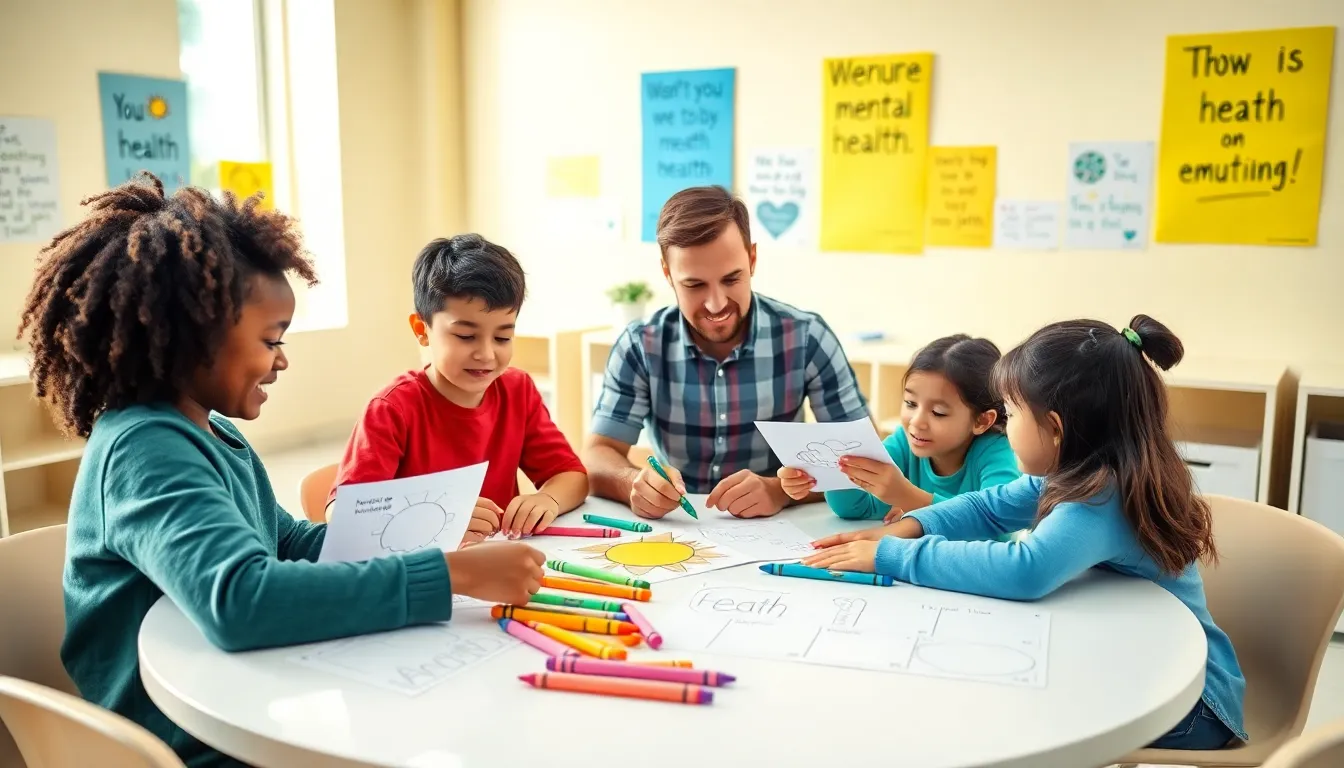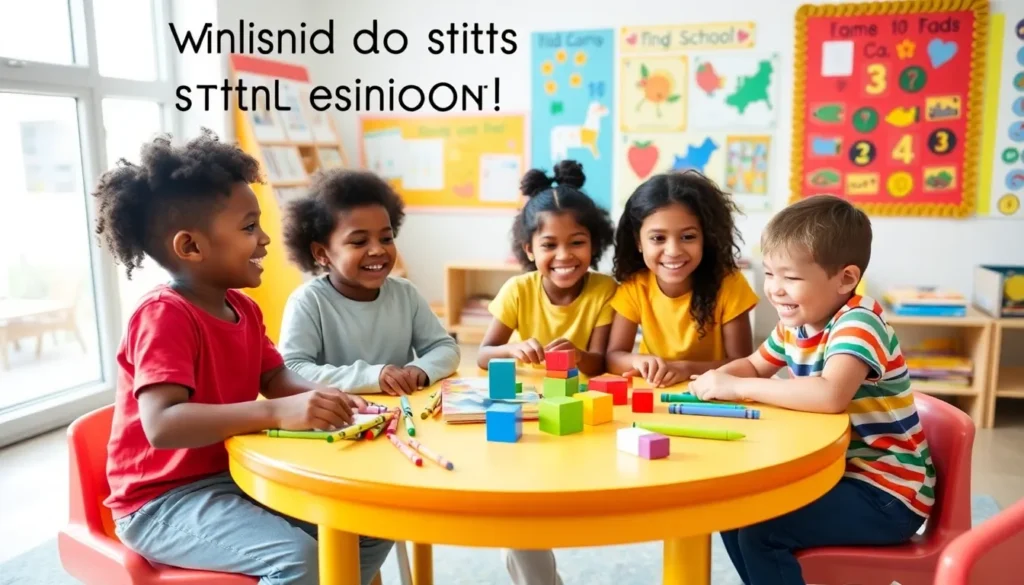Mental health worksheets for kids are more than just colorful sheets of paper: they are vital tools that can help children understand their emotions, develop coping strategies, and set the stage for lifelong emotional well-being. Picture this: a child tackling their feelings like a superhero, armed with worksheets that turn anxiety into action. Don’t we all want our kids to be emotional rockstars? Let’s jump into why these worksheets matter and how they can make a difference in your child’s mental landscape.
Table of Contents
ToggleThe Importance Of Mental Health In Children

Understanding mental health is crucial for children, just as it is for adults. Kids are often thought of as bundles of joy and energy, but behind that smile, they can experience a rollercoaster of emotions. According to the National Institute of Mental Health, one in five children aged 13 to 18 have, or will have, a serious mental illness. That statistic is staggering.
Promoting mental health in early years can lead to healthier behaviors, improved academic performance, and better relationships. Teaching kids how to manage their emotions equips them with tools that will serve them well into adulthood. Just like wearing a seatbelt in a car, developing good mental health habits can be lifesaving. Worksheets provide a platform for self-exploration and understanding, encouraging children to express themselves in a safe, structured way.
Understanding Emotions
Emotions can be tricky. Kids may find it hard to express what they feel or even recognize their feelings. This is where mental health worksheets play a significant role. They can help children label their emotions, making it easier for them to articulate their experiences.
Worksheets often include fun activities like drawing feelings or using emoji faces. This not only makes understanding emotions engaging but can also lead to meaningful conversations about feelings. An example might be a worksheet that asks kids to draw a time they felt happy, sad, or angry. This not only sparks creativity but fosters emotional intelligence in an accessible way.
Types Of Mental Health Worksheets
There’s a plethora of mental health worksheets crafted specifically for kids. They can range from simple emotion identification worksheets to more complex mindfulness exercises.
- Emotion Identification Worksheets: These help children recognize and name their feelings, often featuring images or emoji faces.
- Coping Strategy Worksheets: Focusing on solutions, these worksheets guide children to identify what helps them feel better during tough times.
- Mindfulness Worksheets: These encourage children to practice breathing exercises or visualize a peaceful setting.
- Goal-Setting Worksheets: Here, kids learn to set achievable goals and figure out the steps needed to reach them.
Each type can be tailored to match the developmental stage of the child, ensuring relevance and effectiveness in emotional learning.
Benefits Of Using Worksheets
Introducing mental health worksheets into a child’s routine can yield several benefits. First, they provide an outlet for expression, allowing kids to articulate feelings they might not otherwise share. Second, worksheets can help develop essential life skills, such as problem-solving and emotional regulation.
Besides, using these worksheets can create a bonding experience between parents and children. Imagine sitting together, flipping through a worksheet that guides a heartfelt discussion over ice cream. Doesn’t that sound delightful? These activities foster connection, trust, and understanding.
How To Use Mental Health Worksheets Effectively
To make the most of mental health worksheets, it’s vital to approach them thoughtfully. Here are some key strategies for effective use:
Creating A Safe Space For Discussion
Encouragement and openness are essential when diving into emotions. Establishing a comfortable environment allows children to express themselves freely without the fear of judgment. It may help to set aside regular times to go through the worksheets together, perhaps at the end of the day when they’re ready to wind down.
Adapting Worksheets For Different Age Groups
Different ages prefer different approaches. While younger children gravitate toward colorful imagery and simple questions, older kids may appreciate more detailed prompts and reflective exercises. Tailoring the content to suit the child’s maturity level will enhance engagement and efficacy.
Incorporating Worksheets Into Therapy Or Counseling
For kids in therapy, worksheets can complement professional guidance. Counselors can select specific worksheets to reinforce lessons discussed in sessions, bridging therapeutic insights into daily life. This ongoing practice reinforces learning and encourages emotional resilience.





